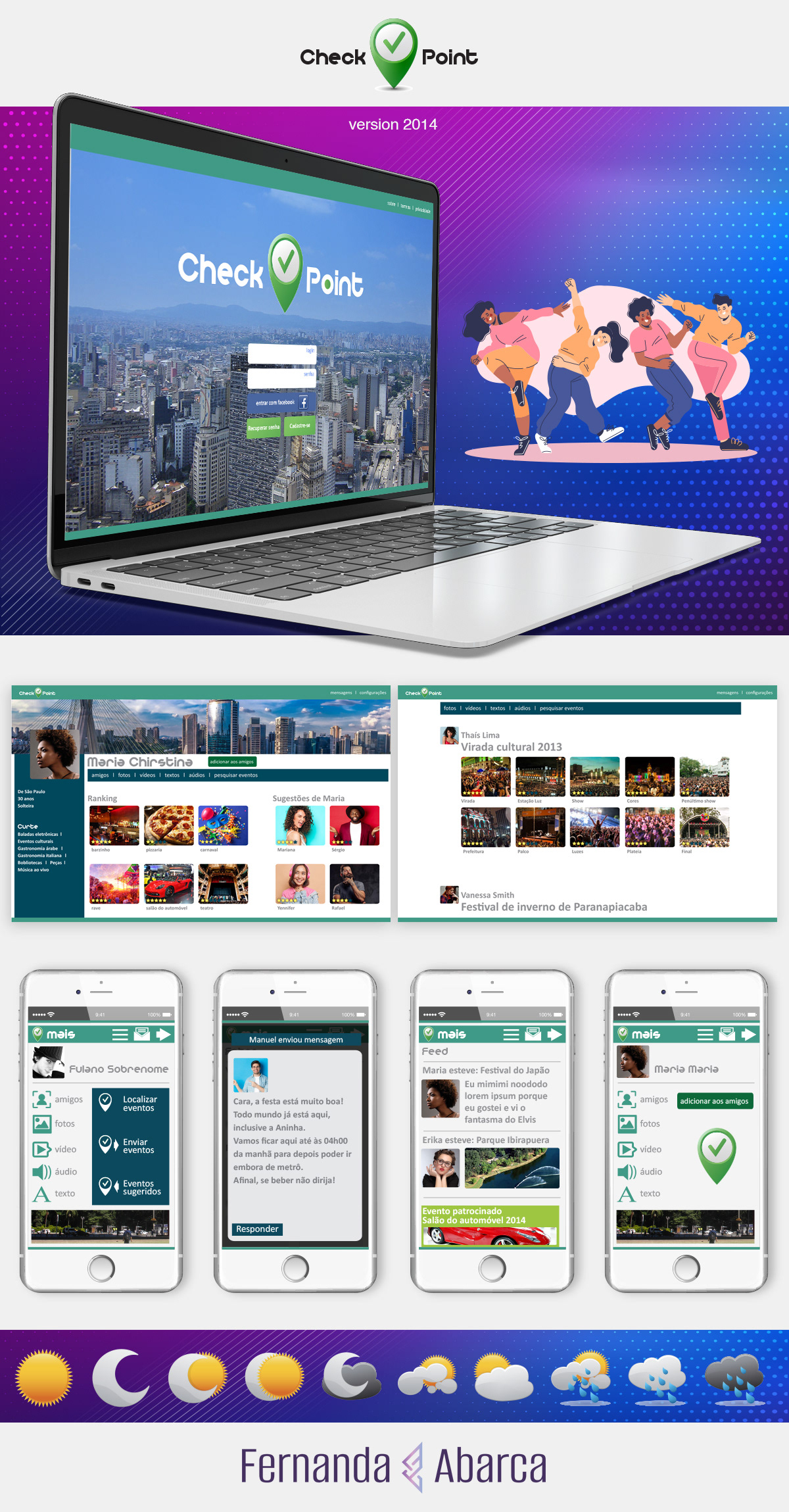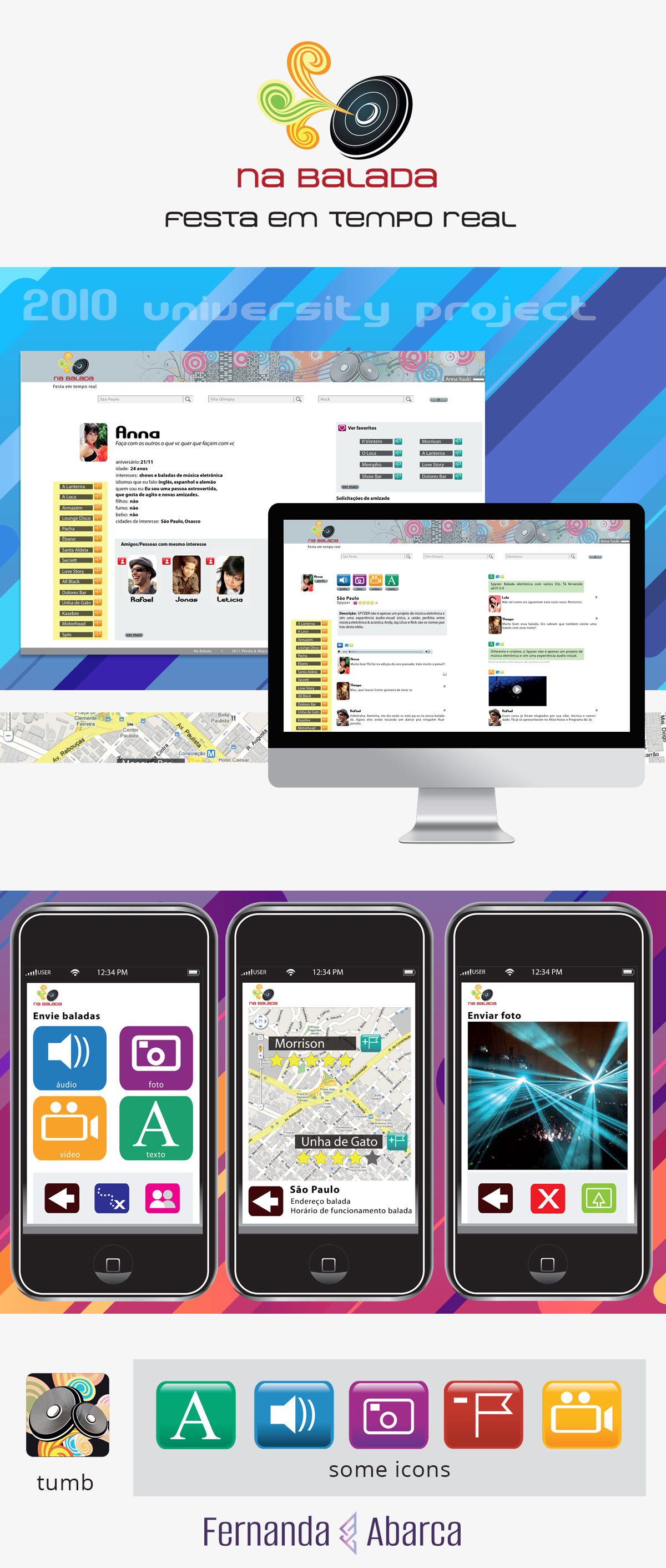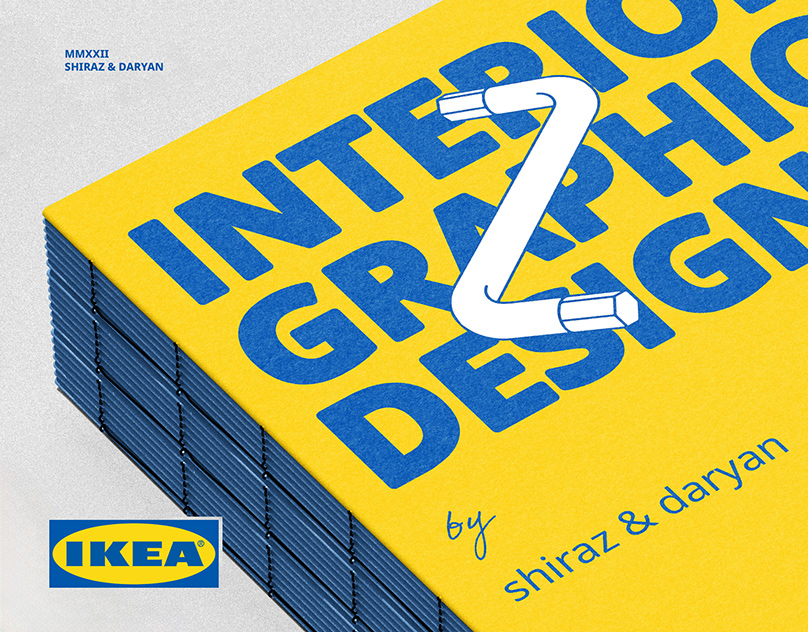
The project Check Point was born as a redesign of the project Na Balada around the year 2012-2013.
Unlike the focus of FourSquare, which at the time only shared locations, on Check Point the user could share videos, photos and audios about the events and send them to their friends. Its purpose was to be a social network for sharing various events such as concerts, parties, and gastronomic festivals, among others.
The proposal was to be only a sharing of the moment, so the media sent were only stored for 72 hours and after this period they would be automatically deleted.
Focused on the Brazilian market, we must take into account that at the time there were no applications like Whatsapp or Telegram. It is possible that nowadays (2022), a social network like Check Point might not be adopted by users.
To validate the idea, surveys were conducted with young people aged between 18 and 30, single and childless, and users of the first smartphones that were arriving on the market through questionnaires and paper prototypes.
The network would be monetized through sponsored events or with highlights and advertising. Users, on the other hand, would be completely free to use it.
The interface was clearly inspired by the first versions of Facebook, and was tested in prototypes built in Flash with some college students of the selected age group. As for usability, the project was well received by the tests, although due to limitations of the time, there was no accessible version for people with special hearing needs.
The proposal was to be only a sharing of the moment, so the media sent were only stored for 72 hours and after this period they would be automatically deleted.
Focused on the Brazilian market, we must take into account that at the time there were no applications like Whatsapp or Telegram. It is possible that nowadays (2022), a social network like Check Point might not be adopted by users.
To validate the idea, surveys were conducted with young people aged between 18 and 30, single and childless, and users of the first smartphones that were arriving on the market through questionnaires and paper prototypes.
The network would be monetized through sponsored events or with highlights and advertising. Users, on the other hand, would be completely free to use it.
The interface was clearly inspired by the first versions of Facebook, and was tested in prototypes built in Flash with some college students of the selected age group. As for usability, the project was well received by the tests, although due to limitations of the time, there was no accessible version for people with special hearing needs.

Academic project for completion of studies (and my first project focused on UI and UX).
The idea for Na Balada came up in 2009, being presented in 2010. At the time, considering the Brazilian market, smartphones were starting to become popular as well as 2.5G and 3G internet.
Taking into account that social networks have always been popular in Brazil, especially at a time when the most used were Orkut and Facebook, Na Balada arose from the need to share information in real time with your friends - which was not the focus of the aforementioned networks.
It was a work developed for the then Internet 2.0 and took its limitations into account.
Created at a time when sharing was not so usual, it was not intended to be a "bank of events", so everything the user shared was deleted after 24 hours.
The monetization system was meant to be through advertising and free usage.
Despite having never been tested in the real market, but only in the university environment, Na Balada was well accepted by both students and professors. The product validation was obtained through interviews, and the prototyping was all done in Flash.
We even developed the site's engine in Ruby on Rails, a language that was very popular at the time.
If you are interested in reading the thesis that generated Na Balada, it is available at the link: https://issuu.com/fernandaabarcaaguilera/docs/tcc_texto_teorico/1
co-authorship: Mariana Pérola
The idea for Na Balada came up in 2009, being presented in 2010. At the time, considering the Brazilian market, smartphones were starting to become popular as well as 2.5G and 3G internet.
Taking into account that social networks have always been popular in Brazil, especially at a time when the most used were Orkut and Facebook, Na Balada arose from the need to share information in real time with your friends - which was not the focus of the aforementioned networks.
It was a work developed for the then Internet 2.0 and took its limitations into account.
Created at a time when sharing was not so usual, it was not intended to be a "bank of events", so everything the user shared was deleted after 24 hours.
The monetization system was meant to be through advertising and free usage.
Despite having never been tested in the real market, but only in the university environment, Na Balada was well accepted by both students and professors. The product validation was obtained through interviews, and the prototyping was all done in Flash.
We even developed the site's engine in Ruby on Rails, a language that was very popular at the time.
If you are interested in reading the thesis that generated Na Balada, it is available at the link: https://issuu.com/fernandaabarcaaguilera/docs/tcc_texto_teorico/1
co-authorship: Mariana Pérola









